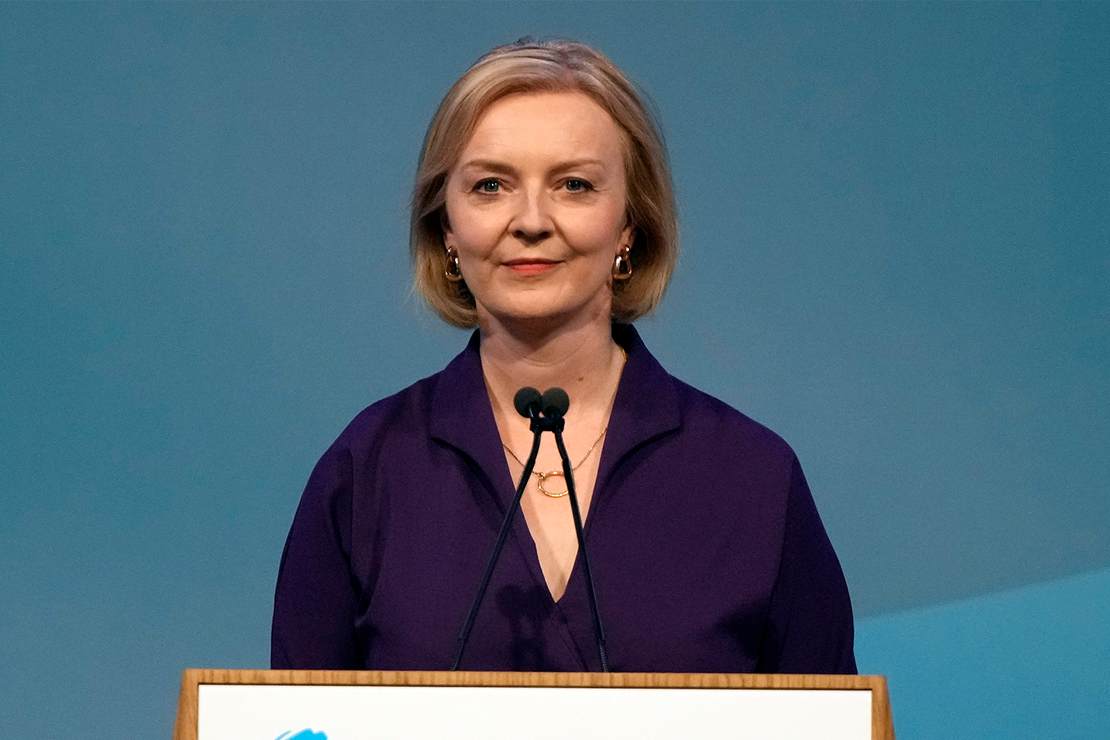
Great Britain has been busily trying to put the entire Boris Johnson era in the rearview mirror and stabilize the economy under the nascent leadership of Liz Truss. One big part of that plan was the announcement of new tax cuts, intended to stimulate spending and increase employment. But the approach to crafting the tax cuts drew significant criticism and sent the value of the British pound plunging as measured against the dollar. As a result of that, the planned cuts have now been axed before they even went into effect and Parliament is back to the drawing board. The Truss era doesn’t seem to be getting off to a great start, though her position doesn’t seem to really be in jeopardy, at least yet. (Associated Press)
The British government has dropped plans to cut income tax for top earners, part of a package of unfunded cuts that sparked turmoil on financial markets and sent the pound to record lows.
In a dramatic about-face, Treasury chief Kwasi Kwarteng said Monday that he will not scrap the top 45% rate of income tax paid on earnings above 150,000 pounds ($167,000) a year.
“We get it, and we have listened,” he said in a statement. He said “it is clear that the abolition of the 45p tax rate has become a distraction from our overriding mission to tackle the challenges facing our country.”
The proposed plan also failed to include a cap on bankers’ bonuses which had been favored by the Labour Party. That proposal also turned out to be popular with the public and the failure to put it in place further increased public unrest.
READ RELATED: Communist Regime Survivor Gives Stark Warning to Americans – the Youth, Especially, Should Take Heed
The entire proposal broke several unwritten rules regarding tax cuts that some conservatives in the United States have been painfully slow to learn. First of all, the cuts primarily benefitted the upper class while delivering little to nothing for working-class voters. Rank-and-file Brits are already facing soaring energy prices and daily costs for nearly everything that are exacerbated by the devalued pound. It should have been obvious that watching the government hand out goodies for bankers and high earners under these conditions was going to lead to some unrest in the streets.
Also, the cuts were to be put in place without any spending cuts to offset them. They were to be paid for with government borrowing, further putting downward pressure on their currency. The Brits haven’t been running up their debt at anywhere near the rate that we’ve seen here in the United States in recent years, but it was still the wrong direction to take. The conservatives don’t have that huge of a majority in Parliament at the moment and some of their members had already announced that they would oppose the bill, so they were clearly playing with fire. Shutting this plan down before it got into gear was probably the only viable option they had.
Truss and her Treasury chief did insist that they would be sticking with the second phase of the original plan, though it won’t take effect until next year. That phase is scheduled to reduce the general tax rate for everyone, though not by as great of a degree. They will also cancel a planned reversal of a corporate tax hike that was put in place under Boris Johnson’s administration. Those moves will likely prove far more popular with the public as they will leave more money in people’s pockets and hopefully slow some of the price increases being seen in the stores.
The Tories seem to be off to a bit of a slow start under Truss, but given the ongoing energy crisis and the instability of the global marketplace, that was probably to be expected. Until the energy situation gets straightened out, however, the public isn’t likely to grow much more enthusiastic in the short term.
Source:




